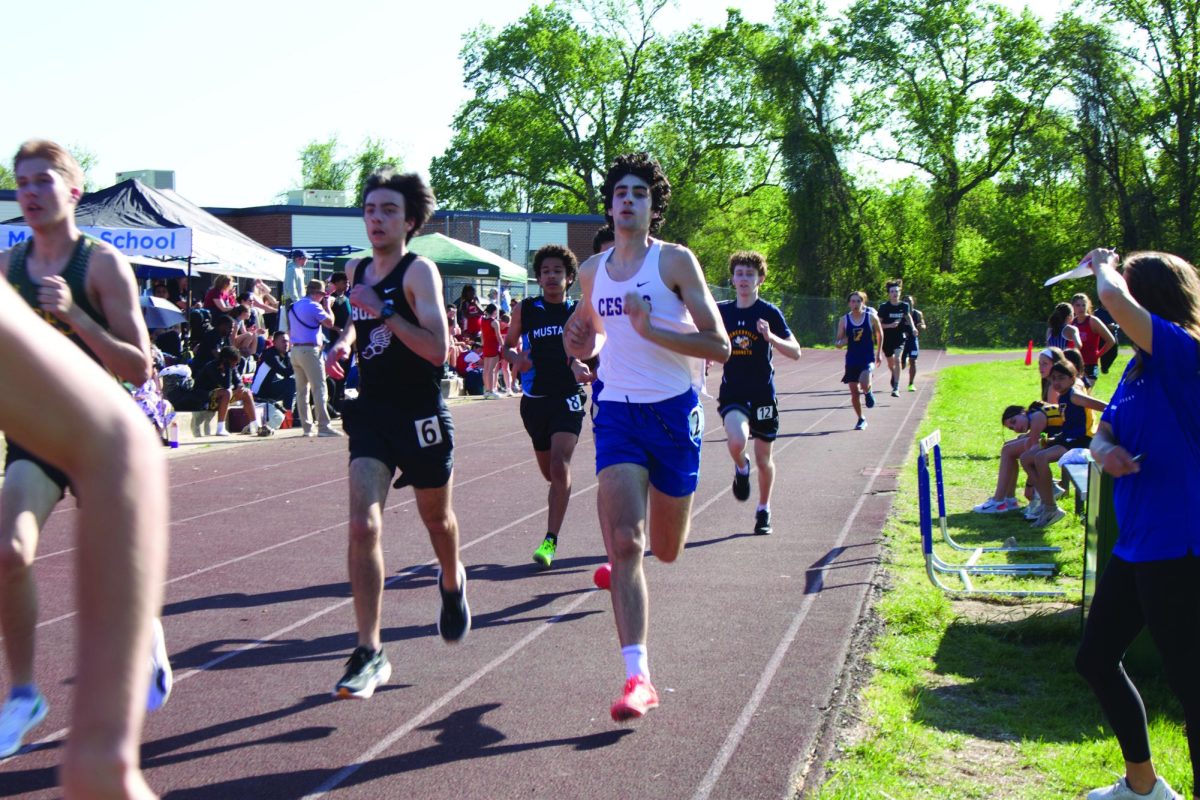While spectators of a cross country race might only see the runners’ immediate pre-race routine, their preparation often begins much earlier. For senior Nathan Szubin, Kiplinger Senior Private School Cross Country Athlete of the Year, mental preparation for race day begins two days prior when he picks out his outfit and his day-of breakfast food.
According to Men’s Journal, many famous athletes do the same. Professionals like Serena Williams, Michael Jordan and Wade Boggs all had superstitions surrounding their games. These athletes believed that superstitions could improve their mental performance. For many athletes, these rituals help them feel comfortable and prepared before a game.
Like these athletes, Szubin has his own rituals. The night before race day, Szubin tries to get nine and a half hours of sleep, and in the morning he wakes up to “Eye of the Tiger” by Survivor.
“I have a black and blue T-shirt usually, from the 2023 [John’s] Hopkins Invitational,” Szubin said. “I have my white Balega Hidden Comfort running socks and my recovery slides. For breakfast, I have a bowl of cereal, and it has to be [in] the blue plastic bowl, Joe’s O’s, blueberries, two pieces of toast [and] a little bit of butter.”
While Szubin’s superstitions might appear to be very specific, they have become an obligatory ritual. Even though Szubin feels that these specific practices might not have a physical effect on his race performance, they put his mind at ease, which he said does affect his performance.
Oftentimes, superstitions do not have a proven effect on physical performance. Rather, they help athletes mentally prepare and feel like they have control over the game. In an article written by IMG Academy, the world’s leading sports education program, the boarding school stated that “Ritual gives an illusion of control.” This phrase can help explain why so many athletes have superstitions and why they are so serious about sticking to them.
Director of Athletics and varsity girls basketball coach Becky Silberman believes her various superstitions may contribute to her team winning or losing a basketball game.
“If I use a marker and we win, I keep using that marker, and regardless of how we play or whatever happens, as long as we win, I’ll keep that color marker,” Silberman said. “So if you see me with the same color [marker] from game to game, that’s why.”
Another student who is superstitious about his sport is sophomore Noah Sacks. Sacks is on the varsity baseball team and other baseball teams outside of school. Sacks’ superstitions help him feel mentally prepared for when he steps on the field. He said he is very intentional with what he eats before the game and what he does once he gets to the field.
“I wear the same undershirt for every game, and I never step on the [first and third base] line when I walk out to the field,” Sacks said. “I don’t eat before games, but if I do, I’ll have a granola bar or a banana. Sometimes if I eat too much [before a game], I won’t feel good, but everything else is purely mental.”
Szubin, Silberman and Sacks have different uses for their superstitions. Silberman, as a coach, utilizes her superstitions as a way to try to impact the game she is coaching because she believes that her superstitions could affect her team’s play as a whole.
As athletes, Szubin and Sacks derive more mental preparation through their superstitions. Their rituals are intended to boost their confidence on the field or race track and give themselves reassurance in their personal performance.
“Sometimes it’s just a comfort thing, but I don’t know how much it actually affects the game,” Sacks said. “But if I do [superstitions], it helps me feel more mentally prepared, especially for baseball which is mentally challenging, and I think it helps me play better.”







